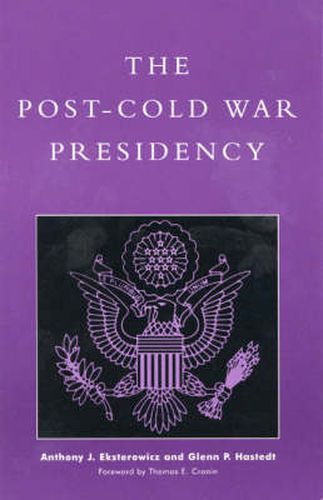Readings Newsletter
Become a Readings Member to make your shopping experience even easier.
Sign in or sign up for free!
You’re not far away from qualifying for FREE standard shipping within Australia
You’ve qualified for FREE standard shipping within Australia
The cart is loading…






With the end of the Cold War, US presidential leadership has become both more important and more difficult. Post-war periods have historically posed challenges to leadership, and this time around the long-term image of the leader of the free world has declined in the face of globalization and increased interdependence among the nations. It is this complex environment that makes Americans look even more to their president for guidance. This is a discussion of socio-cultural, political and economic changes during and after the Cold War period, and how these have affected modern presidential leadership. The contributors cover key issues - image and character, domestic and foreign policy, distractionary theory, domestic and international economics, executive/legislative relations, security/intelligence, executive dominance, and activist government - and suggest strategies for helping to ensure a strong presidency in the future.
$9.00 standard shipping within Australia
FREE standard shipping within Australia for orders over $100.00
Express & International shipping calculated at checkout
With the end of the Cold War, US presidential leadership has become both more important and more difficult. Post-war periods have historically posed challenges to leadership, and this time around the long-term image of the leader of the free world has declined in the face of globalization and increased interdependence among the nations. It is this complex environment that makes Americans look even more to their president for guidance. This is a discussion of socio-cultural, political and economic changes during and after the Cold War period, and how these have affected modern presidential leadership. The contributors cover key issues - image and character, domestic and foreign policy, distractionary theory, domestic and international economics, executive/legislative relations, security/intelligence, executive dominance, and activist government - and suggest strategies for helping to ensure a strong presidency in the future.